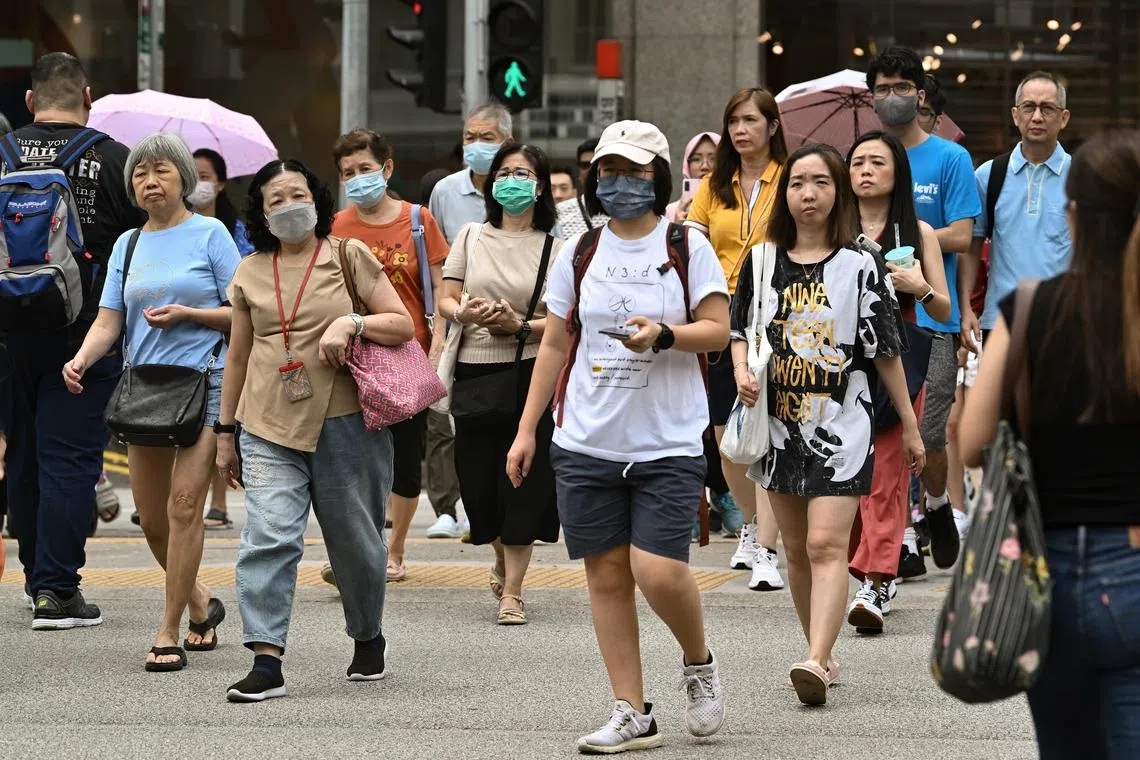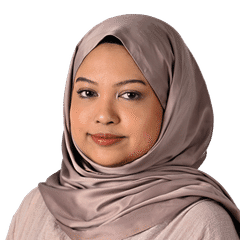Workplace ageism, caregiving burden among older women’s concerns: Report
Sign up now: Get ST's newsletters delivered to your inbox

Caregiving responsibilities that hinder retirement plans, and facing ageism and stereotypes in the workplace were among the concerns cited.
ST PHOTO: LIM YAOHUI
Follow topic:
SINGAPORE – Older women in Singapore have pressing concerns over issues like caregiving, workplaces and retirement which must be better addressed, say local women’s groups.
Some of their concerns include caregiving responsibilities that hinder retirement plans, and facing ageism and stereotypes in the workplace.
The findings were part of a new report by the Singapore Alliance for Women in Ageing (Sawa) released on Tuesday. The group felt that the Government’s White Paper on Singapore Women’s Development,
Sawa is an alliance that focuses on the care of older women and it comprises four local organisations – Association of Women for Action and Research (Aware), Singapore Muslim Women’s Association, Singapore Council of Women’s Organisations and the Tsao Foundation. The group spoke to 170 women between July 2022 and February 2023 for the report.
Participants said they faced employer stereotypes about older women in the workplace, who were often seen as slow, less productive and less adaptable.
One participant shared that although employees are encouraged to work for longer, promotion opportunities tend to happen earlier in one’s career. She said: “At about 58 years old, we no longer receive promotions, and job responsibilities might start to change or reduce. You are suddenly on (a path of) deceleration, and this demotivates the person to continue working up to 65 or 68 years old.”
Older working women may also need to take leave from work to go for medical appointments, check-ups and treatments. Participants felt that they should be able to do this to take care of their health, without it leading to them being penalised at work or dismissed.
Aware executive director Corinna Lim told The Straits Times that older women may be marginalised on the basis of both their gender and age.
She said: “Not only are older women given fewer opportunities and privileges than men due to existing patriarchal norms and structures, they are often assumed to be less productive than younger workers, and are thus less valued.”
The challenges faced by older women tend to be less visible, and gender role stereotyping contributes to the marginalisation of the group, she said.
“The naturalisation of women’s place within the private, domestic sphere as primary caregivers distances them from the public, political sphere, which then has the effect of rendering invisible their experiences and challenges.”
The report found that older women tend to prioritise their families,
As a result, older women are constantly caring for the family, leaving minimal breathing space for themselves, it added.
Although there are existing efforts and community care services available to provide support for caregivers, participants suggested that weekend daycare services should be offered by more centres, so that caregivers can rest when they are not working.
The women shared that besides supporting their elderly parents financially and physically, they had to attend to their own medical needs too.
A participant said: “When my mother was diagnosed with dementia, my children were studying for tertiary education – I had to take care of them while juggling my health. When her condition deteriorated, I had to engage a helper to look after her, and took care of my mother in every aspect including financially.”
Retirement was also a key worry.
With more marrying and setting up families at a later age, more older women will eventually end up in the sandwiched class – simultaneously caring for children below 12 years old, as well as for family members aged 65 and above.
In a 2019 Aware study on female family caregivers in Singapore, most of the 22 respondents were aged 55 to 65, while the people under their care were largely their parents who were in their 80s.
Ms Lim said that these women’s retirement adequacies were affected by caregiving, as two-thirds of those who used to work either reduced their work hours, or left their jobs entirely to better manage their caregiving responsibilities. This in turn affected their income and Central Provident Fund contributions.
Sawa urged stronger protection of re-employed workers in terms of pay and workplace practices, and to build or better use institutional structures to support older female employees juggling domestic obligations and workplace responsibilities.
Participants in the report also recommended more community support to ease caregiver strain. This could include volunteers engaging seniors, or helping women to care for their children.
Correction note: An earlier version of the story stated that Sawa spoke to 170 women between July and February 2022 for the report. It should be between July 2022 and February 2023. We are sorry for the error.


